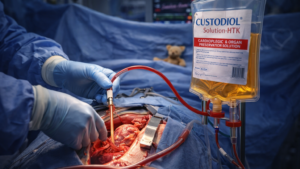Background: Systemic immune-inflammation index (SII), a new inflammatory index calculated using platelet, neutrophil, and lymphocyte counts, has been demonstrated to be an independent risk factor for the identification of high-risk coronary artery disease in patients undergoing percutaneous coronary intervention and cardiovascular surgery with cardiopulmonary bypass (CPB). The relationship between SII and CPB-related mortality rates remains unclear.
Objective: This research was designed to investigate the use of SII to predict in-hospital mortality in patients undergoing cardiac surgery with CPB.
Methods: Four hundred eighty patients who underwent a cardiac procedure involving CPB over 3 years, were obtained from the hospital’s database. The demographic data, comorbidities, hematological and biochemical profiles, and operative data of the groups were compared. Multiple logistic regression analyses were done to determine independent predictors of mortality. Prognostic factors were assessed by multivariate analysis, and the predictive values of SII, neutrophil-lymphocyte ratio (NLR), and platelet-lymphocyte ratio (PLR) for mortality were compared. A p-value <0.05 was considered significant.
Results: Of 480 patients, 78 developed in-hospital mortality after cardiac surgery. SII was an independent predictor of in-hospital mortality (Odds ratio: 1.003, 95% confidence interval: 1.001-1.005, p<0.001). The cut-off value of the SII was >811.93 with 65% sensitivity and 65% specificity (area under the curve: 0.690). The predictive values of SII, PLR, and NLR were close to each other.
Conclusion: High preoperative SII scores can be used for early determination of appropriate treatments, which may improve surgical outcomes of cardiac surgery in the future.







